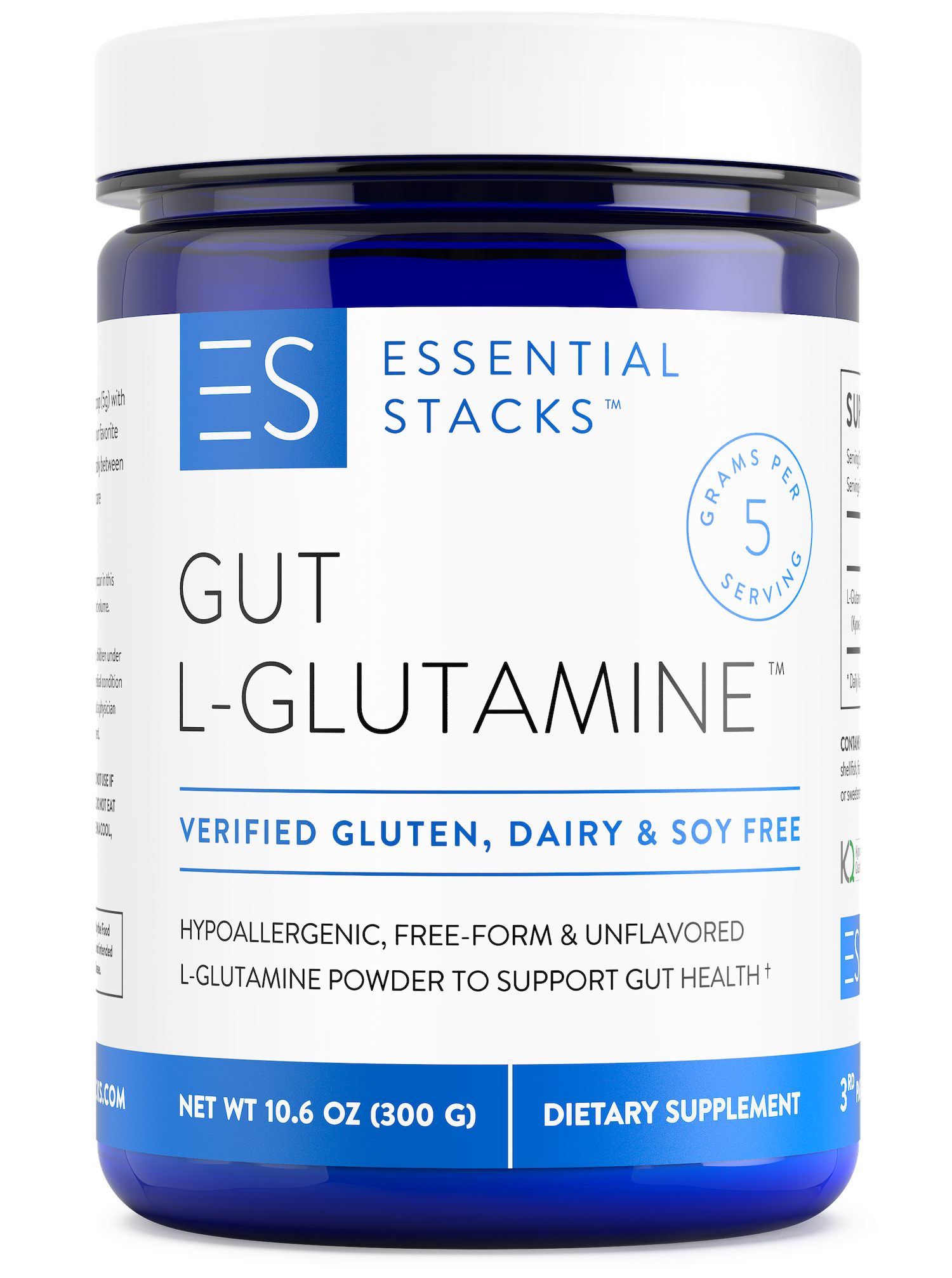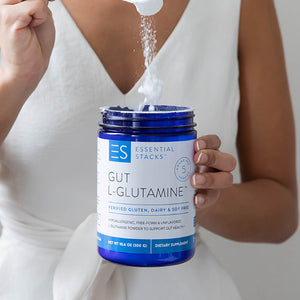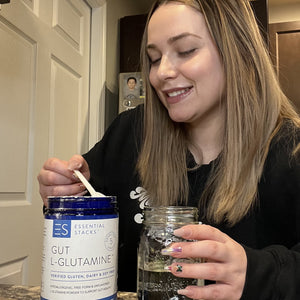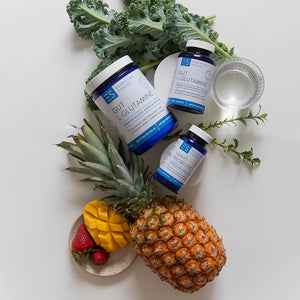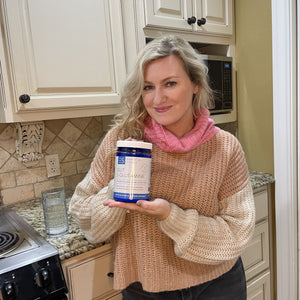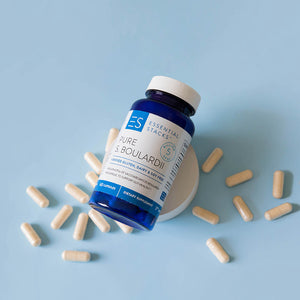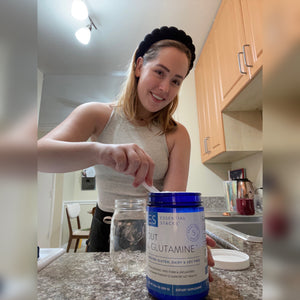Love Your Gut
We design supplement formulas (‘stacks’) to support occasional bloating, as well as normal digestion & bowel movements.
Shop Now Ask A QuestionMade Exclusively In The USA
While most L-Glutamine is made in China, where quality standards can vary, Gut L-Glutamine is proudly made, packaged & tested right here in the USA from start to finish. Quality you can trust.
Our Products

Gut L-Glutamine
Our flagship gut health supplement - proudly made, packaged & tested right here in the USA from start to finish.
$34.95

Flavored Gut L-Glutamine
Your favorite L-Glutamine just got tastier! Meet our naturally flavored, sugar-free Raspberry Lemonade L-Glutamine.
$29.95

Gut L-Glutamine Capsules
Enjoy your L-Glutamine no matter where you are - perfect for work, traveling or when outside the home!
$21.95

Upgraded Betaine HCL
Back In Stock on Amazon Now >
Betaine HCL combined with pepsin, ox bile, gentian and ginger. Enjoy eating protein & fat-rich meals. Perfect for gut-friendly diets like keto, paleo & low FODMAP.†
$29.95

Pure Enzymes
18-1 digestive enzyme blend to support digestion of carbs, fats, protein & fiber. Suitable for all meals you enjoy.
$29.95

Smart Probiotic
Sayonara sauerkraut! Support your digestive system the easy way, with this army of probiotic superheroes. 50 billion CFUs from 11 different probiotic strains, in every capsule.
$29.95

Pure S Boulardii
Saccharomyces Boulardii 5 billion CFUs - a beneficial probiotic yeast to support gut health.
$26.95

Gut Collagen
Forget making 12-hour bone broth and say hello to Gut Collagen! Made exclusively from grass-fed cattle.
$32.95

Friendly Prebiotics
Feed your gut friendly prebiotic fiber - made exclusively with our 2 favorite soluble fibers, being Acacia Fiber and Sunfiber (PHGG)†
$27.95

Gut L-Glutamine XL
Say hello to your favorite L-Glutamine powder, now in a bigger & better value size. Designed to meet your daily needs.
$42.95
Learn
Discover how to support your gut health through diet & supplements.
Meet the Team
Our team of RDs, MDs & researchers are obsessed with creating the digestive supplements your gut loves most

Richelle Godwin BS, RDN
Registered Dietitian (RDN)

Dr. Joe Haines MD, MPH
Medical Doctor (MD)
Join The Beautiful Bowel Movement
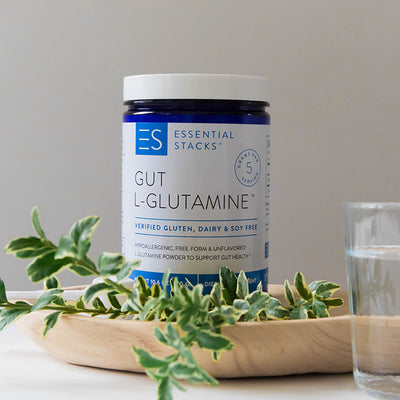
Cristina P.
Verified Buyer

“I’m so happy I came across this product in my search. I’ve been taking this a few months now and have noticed a HUGE difference!”
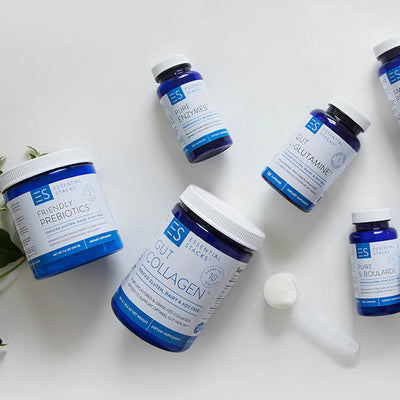
Christell S.
Verified Buyer

“I love this powder. Mixes easy. Easy to use and my gut has not felt this good in many years. I’m so glad I found this company and their products. They are high quality at a very fair price. Thanks ES.”
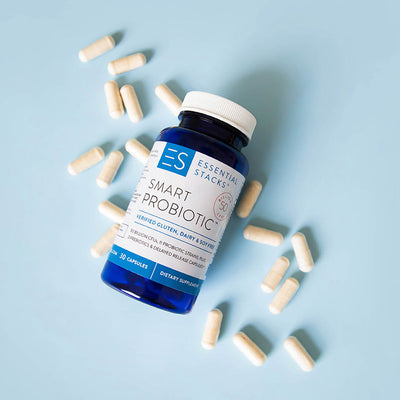
Courtney C.
Verified Buyer

“This product is great! When I am consistent with taking it I really see a difference in my bloating but also overall feel really good! Really loving
It!”



